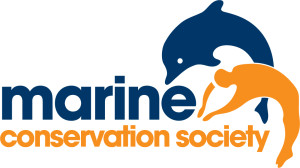News
We should not take marine life for granted, says nature and wildlife illustrator Millie Marotta

 Bestselling illustrator Millie Marotta has joined forces with the Marine Conservation Society to launch a national month-long colouring campaign for ‘national parks of the sea’. The nature inspired illustrator from Pembrokeshire whose latest book, Curious Creatures, uncovers the world’s most visually fascinating underwater species, said that we were at risk of taking its diverse marine life for granted.
Bestselling illustrator Millie Marotta has joined forces with the Marine Conservation Society to launch a national month-long colouring campaign for ‘national parks of the sea’. The nature inspired illustrator from Pembrokeshire whose latest book, Curious Creatures, uncovers the world’s most visually fascinating underwater species, said that we were at risk of taking its diverse marine life for granted.
Millie says: “I live in the UK’s only coastal national park and feel incredibly lucky to have such beautiful beaches and amazing marine wildlife so close by. Here in the UK we have a very rich and diverse array of wildlife both in and around our seas and we must not take that for granted. With so many threats these days to our marine environment and its inhabitants I feel it’s important that we do whatever we can to protect these species and ensure the future health of our seas. The Marine Conservation Society’s campaign to create and manage more Marine Protected Areas in the UK means that more of our seas will have the protection needed for species to recover and thrive. This is a hugely important campaign and one that I wholeheartedly support.”
In addition to signing the Marine Conservation Society’s petition, Millie is urging the public to colour and share her illustration of the hermit crab, a favourite of rock-pool enthusiasts, and commonly found in the shores and depths of the British coast, with the hashtag #helpthehermit.
Rachel Alcock, Senior Campaigner, Marine Conservation Society, said: “Many of us are often surprised by the incredible animals and plants found in the seas around the UK. Our seas are rich with unique species, shimmering shoals and reefs teeming with life. It is wonderful that Millie has signed our petition and we ask that everyone who enjoys colouring in her beautiful illustrations signs too. We are calling on decision makers across England, Scotland, Wales and Northern Ireland to protect these treasures by designating and properly managing Marine Protected Areas”.
How to be part of ‘colouring for conservation’
Sign – Support the Marine Conservation Society’s petition for Marine Protected Areas: www.mcsuk.org/colouring
Colour – Download and colour Millie Marotta’s exclusive hermit crab illustration from @milliemarotta on Facebook
Share – Post on social media using #helpthehermit. Tag the Marine Conservation Society on Twitter @mcsuk, or on Instragram at @MCS_UK, or send to Millie on her Facebook page @milliemarotta for the chance to have your colouring shared with her 20,000+ fans!
Colouring for conservation: Millie will be using Facebook to share important facts about the campaign for Marine Protected Areas.
Which areas of sea should be protected? Why? What lives there?
The Mid St George’s Channel covers an area of 761km2, and the zone lies between Wales and the Republic of Ireland. The sand and gravel that is found here supports populations of annelid worms, clams and crustaceans. Breeding seabirds, whales and dolphins are often seen feeding in the waters above. Pressure needs to be kept up to ensure that this area is designated as a protected site.
The colourfully named Mud Hole is an offshore site measuring 72 km². It is around 35m deep, and is located 21km off the coast of Cumbria. Within this area there are a variety of features including Sea-pens and the rare to this area Burrowing Megafauna. If designated this site could allow for recovery of this highly sensitive area. Defra have the opportunity to safeguard this area by designating it as a Marine Protected Area. It is vital that they do just that next year.
Located on the East Sussex coastline, the proposed Marine Conservation Zone Beachy Head East contains a very important chalk reef. This area supports a range of animals including Ross coral. The Mussel beds found here are considered to be one of the best examples of this habitat in the region. Blue mussel beds are known to be important for water quality, act as a food source for sea birds, and even help with to coastal protection. It is vital that Defra properly protect Beachy Head East by making it a Marine Protected Area next year.
The Faroe-Shetland Sponge Belt Marine Protected Area is located to the west of the Shetland Islands on the Scottish side of the Faroe-Shetland Channel. It was designated as a Nature Conservation Marine Protected Area in 2014 which is fantastic. However, it is now vital that management measures are put in place to ensure that this special area is well looked after.
 Help hermit and his habitat: bring Millie’s hermit crab to life by downloading and colouring him in.
Help hermit and his habitat: bring Millie’s hermit crab to life by downloading and colouring him in.
- Download him from the Pavillion website from September 14th
- Post on social media using #helpthehermit. Tag the Marine Conservation Society on Twitter @mcsuk, or on Instragram at @MCS_UK, or send to Millie on her Facebook page @milliemarotta for the chance to have your colouring shared with her 20,000+ fans!
Visit www.mcsuk.org/colouring to find out how to sign the petition.
Gear News
Introducing the TR-80, IR-50 and CS-30 Regulators from DYNAMICNORD

Whether you are a beginner or a professional diver – with the three new main regulators from DYNAMICNORD, everyone will find their favourite regulator. They all look super stylish.
Excellent performance with the TR-80
Quality and performance are the be-all and end-all for regulators. It is not for nothing that the TR stands for Tec Reg. The innovative design of the TR-80 guarantees absolute reliability – even in ice-cold waters.

Perfect breathing effort at 0.8 J/l / certified for diving in waters below 10 degrees / structural design made of solid brass for best cold protection / membrane-compensated design with dry seal of the first stage / reduced exhalation effort thanks to optimized exhalation membrane and bubble deflector / adjustable Venturi (dive/predive) and adjustment knob for individual inhalation comfort / innovative design of the front cover prevents free-flow in strong currents or when diving with scooters / design made of sandblasted brass, matt chrome finish / 2 HP and 4 LP outlets / mouthpiece made of high-quality, anti-allergic silicone for maximum comfort.


Amazing underwater adventures with the IR-50
The IR-50 is the top regulator for advanced and experienced divers. Natural breathing is the essence of this regulator.

Ideal breathing effort at 0.8 J/l /certified for diving in waters below 10 degrees / compensated membrane / adjustable venturi (dive/predive) and adjustment knob for individual inhalation comfort/ outlet valve and deflector for minimum exhalation effort and reduction of bubbles on the face / design made of sandblasted brass, matt chrome finish / 2 HP and 4 NP outlets / mouthpiece made of high-quality, anti-allergic silicone for maximum comfort.


The Workhorse – our CS-30
For diving centres and diving beginners – the workhorse stands for strong construction, reliability and robustness. Perfect for your training.

Optimal breathing effort at 0.8 J/l /recommended for diving in waters above 10 degrees / non-compensated piston / adjustable venturi (dive/predive) / outlet valve and deflector for minimum exhalation effort and reduction of bubbles on the face / design made of sandblasted brass, matt chrome finish / 1 HP and 3 NP outlets / mouthpiece made of high-quality, anti-allergic silicone for maximum comfort.


Octopus OP-30
The OP-30 is the ideal addition to all DYNAMICNORD regulators. It is identical in construction to the CS-30.

The TR-80, IR-50, CS-30 (DIN & INT) regulators and the Octopus OP-30 are available from DYNAMICNORD dealers and in the online store.
DYNAMICNORD – Your Outdoor Companion.
Marine Life & Conservation
Paul Watson Released as Denmark Blocks Japan’s Extradition Bid

Renowned anti-whaling activist Paul Watson has been released from custody in Greenland after spending five months in detention. Denmark’s Justice Ministry rejected Japan’s request for his extradition, citing insufficient guarantees that his time already served in custody would be credited against any potential sentence.
The 74-year-old Canadian-American was arrested on July 21 in Nuuk, Greenland’s capital, when his ship docked to refuel. His arrest was based on a 2012 Japanese warrant related to a 2010 encounter in Antarctic waters. Japan alleged Watson obstructed operations and caused damage to a whaling research ship during efforts to disrupt illegal whaling. Watson has consistently denied these claims, maintaining his commitment to marine conservation.
Denmark, which oversees extradition matters for Greenland, concluded that while the legal conditions for extradition were met, the lack of assurances from Japan regarding time-served credit made extradition untenable.
In a video shared by his foundation, Watson expressed gratitude and relief, saying, “After five months, it’s good to be out… and good to know they’re not sending me to Japan.” He added that the most difficult part of his time in custody was being separated from his two young sons.
Watson is a pioneering figure in marine conservation, known for founding the Captain Paul Watson Foundation in 2022 after decades of activism with the Sea Shepherd Conservation Society. His bold efforts to defend marine life have earned him widespread support, including from celebrities and conservationists. His work has also been featured in the acclaimed reality TV series Whale Wars.
Watson’s lawyer, Jonas Christoffersen, praised the decision, stating, “We are happy and relieved that Paul Watson is now free.” He added that Watson is eager to reunite with his family and continue his vital work.
The arrest occurred while Watson’s vessel, the M/Y John Paul DeJoria, was en route to the North Pacific with a team of 26 volunteers to intercept a Japanese whaling ship. His foundation described the arrest as politically motivated and emphasized that Watson’s actions were focused on ending illegal whaling practices.
Japan resumed commercial whaling in 2019 after leaving the International Whaling Commission, asserting that whale meat is a cultural tradition. Conservationists, however, continue to challenge these practices, highlighting their impact on marine ecosystems.
Despite the challenges, Watson remains steadfast in his mission to protect marine life and bring attention to whaling practices. His dedication to ocean conservation has made him a globally respected advocate for the environment.
-

 News2 months ago
News2 months agoIconic SS United States to become the World’s Largest Artificial Reef
-

 News3 months ago
News3 months agoBook Review – 52 Assignments: Underwater Photography
-

 Gear News3 months ago
Gear News3 months agoDYNAMICNORD – New German diving brand enters the British market
-

 News3 months ago
News3 months agoExploring Cenote El Pit: A Diver’s Dream
-

 Gear News3 months ago
Gear News3 months agoTry BARE drysuits (and maybe even win one!) this Friday with Sea & Sea at North West Dive Fest
-

 Marine Life & Conservation3 months ago
Marine Life & Conservation3 months agoBook Review: Coral Triangle Cameos
-

 Blogs2 months ago
Blogs2 months agoDive the Egyptian Red Sea this Autumn with Regaldive
-

 News3 months ago
News3 months ago2024 Ocean Art Underwater Photo Competition Announced















